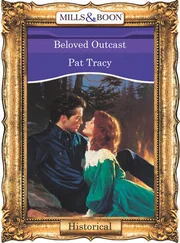"Leave her be," said Paul D. "I'm a stranger to her."
"That's just it. She got no cause to act up with a stranger. Oh baby, what is it? Did something happen?"
But Denver was shaking now and sobbing so she could not speak.
The tears she had not shed for nine years wetting her far too womanly breasts.
"I can't no more. I can't no more."
"Can't what? What can't you?"
"I can't live here. I don't know where to go or what to do, but I can't live here. Nobody speaks to us. Nobody comes by. Boys don't like me. Girls don't either."
"Honey, honey."
"What's she talking 'bout nobody speaks to you?" asked Paul D.
"It's the house. People don't-"
"It's not! It's not the house. It's us! And it's you!"
"Denver!"
"Leave off, Sethe. It's hard for a young girl living in a haunted house. That can't be easy."
"It's easier than some other things."
"Think, Sethe. I'm a grown man with nothing new left to see or do and I'm telling you it ain't easy. Maybe you all ought to move.
Who owns this house?"
Over Denver's shoulder Sethe shot Paul D a look of snow. "What you care?"
"They won't let you leave?"
"No."
"Sethe."
"No moving. No leaving. It's all right the way it is."
"You going to tell me it's all right with this child half out of her mind?"
Something in the house braced, and in the listening quiet that followed Sethe spoke.
"I got a tree on my back and a haint in my house, and nothing in between but the daughter I am holding in my arms. No more running-from nothing. I will never run from another thing on this earth. I took one journey and I paid for the ticket, but let me tell you something, Paul D Garner: it cost too much! Do you hear me?
It cost too much. Now sit down and eat with us or leave us be."
Paul D fished in his vest for a little pouch of tobacco-concentrating on its contents and the knot of its string while Sethe led Denver into the keeping room that opened off the large room he was sitting in. He had no smoking papers, so he fiddled with the pouch and listened through the open door to Sethe quieting her daughter. When she came back she avoided his look and went straight to a small table next to the stove. Her back was to him and he could see all the hair he wanted without the distraction of her face.
"What tree on your back?"
"Huh." Sethe put a bowl on the table and reached under it for flour.
"What tree on your back? Is something growing on your back?
I don't see nothing growing on your back."
"It's there all the same."
"Who told you that?"
"Whitegirl. That's what she called it. I've never seen it and never will. But that's what she said it looked like. A chokecherry tree.
Trunk, branches, and even leaves. Tiny little chokecherry leaves. But that was eighteen years ago. Could have cherries too now for all I know."
Sethe took a little spit from the tip of her tongue with her forefinger.
Quickly, lightly she touched the stove. Then she trailed her fingers through the flour, parting, separating small hills and ridges of it, looking for mites. Finding none, she poured soda and salt into the crease of her folded hand and tossed both into the flour. Then she reached into a can and scooped half a handful of lard. Deftly she squeezed the flour through it, then with her left hand sprinkling water, she formed the dough.
"I had milk," she said. "I was pregnant with Denver but I had milk for my baby girl. I hadn't stopped nursing her when I sent her on ahead with Howard and Buglar."
Now she rolled the dough out with a wooden pin. "Anybody could smell me long before he saw me. And when he saw me he'd see the drops of it on the front of my dress. Nothing I could do about that. All I knew was I had to get my milk to my baby girl. Nobody was going to nurse her like me. Nobody was going to get it to her fast enough, or take it away when she had enough and didn't know it. Nobody knew that she couldn't pass her air if you held her up on your shoulder, only if she was lying on my knees. Nobody knew that but me and nobody had her milk but me. I told that to the women in the wagon. Told them to put sugar water in cloth to suck from so when I got there in a few days she wouldn't have forgot me. The milk would be there and I would be there with it."
"Men don't know nothing much," said Paul D, tucking his pouch back into his vest pocket, "but they do know a suckling can't be away from its mother for long."
"Then they know what it's like to send your children off when your breasts are full."
"We was talking 'bout a tree, Sethe."
"After I left you, those boys came in there and took my milk.
That's what they came in there for. Held me down and took it. I told Mrs. Garner on em. She had that lump and couldn't speak but her eyes rolled out tears. Them boys found out I told on em. Schoolteacher made one open up my back, and when it closed it made a tree. It grows there still."
"They used cowhide on you?"
"And they took my milk."
"They beat you and you was pregnant?"
"And they took my milk!"
The fat white circles of dough lined the pan in rows. Once more Sethe touched a wet forefinger to the stove. She opened the oven door and slid the pan of biscuits in. As she raised up from the heat she felt Paul D behind her and his hands under her breasts. She straightened up and knew, but could not feel, that his cheek was pressing into the branches of her chokecherry tree.
Not even trying, he had become the kind of man who could walk into a house and make the women cry. Because with him, in his presence, they could. There was something blessed in his manner.
Women saw him and wanted to weep-to tell him that their chest hurt and their knees did too. Strong women and wise saw him and told him things they only told each other: that way past the Change of Life, desire in them had suddenly become enormous, greedy, more savage than when they were fifteen, and that it embarrassed them and made them sad; that secretly they longed to die-to be quit of it-that sleep was more precious to them than any waking day. Young girls sidled up to him to confess or describe how well-dressed the visitations were that had followed them straight from their dreams.
Therefore, although he did not understand why this was so, he was not surprised when Denver dripped tears into the stovefire. Nor, fifteen minutes later, after telling him about her stolen milk, her mother wept as well. Behind her, bending down, his body an arc of kindness, he held her breasts in the palms of his hands. He rubbed his cheek on her back and learned that way her sorrow, the roots of it; its wide trunk and intricate branches. Raising his fingers to the hooks of her dress, he knew without seeing them or hearing any sigh that the tears were coming fast. And when the top of her dress was around her hips and he saw the sculpture her back had become, like the decorative work of an ironsmith too passionate for display, he could think but not say, "Aw, Lord, girl." And he would tolerate no peace until he had touched every ridge and leaf of it with his mouth, none of which Sethe could feel because her back skin had been dead for years. What she knew was that the responsibility for her breasts, at last, was in somebody else's hands.
Would there be a little space, she wondered, a little time, some way to hold off eventfulness, to push busyness into the corners of the room and just stand there a minute or two, naked from shoulder blade to waist, relieved of the weight of her breasts, smelling the stolen milk again and the pleasure of baking bread? Maybe this one time she could stop dead still in the middle of a cooking meal-not even leave the stove-and feel the hurt her back ought to. Trust things and remember things because the last of the Sweet Home men was there to catch her if she sank?
Читать дальше











